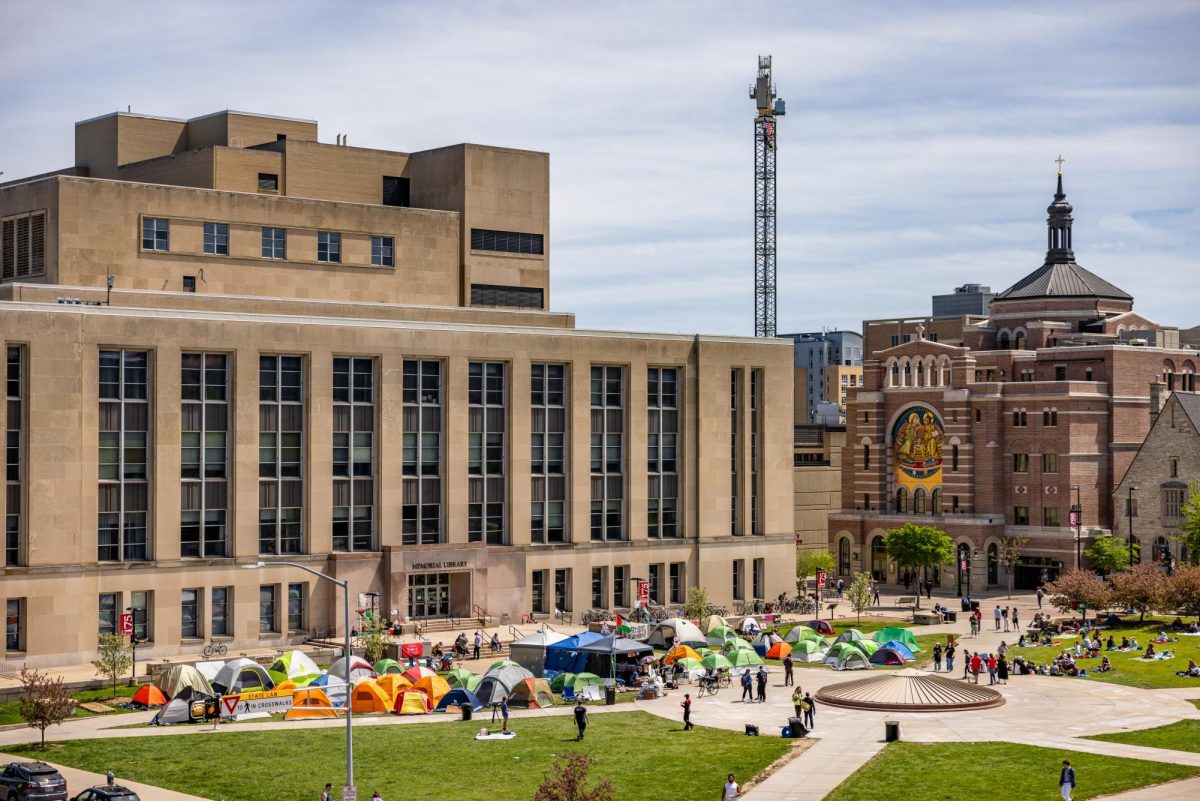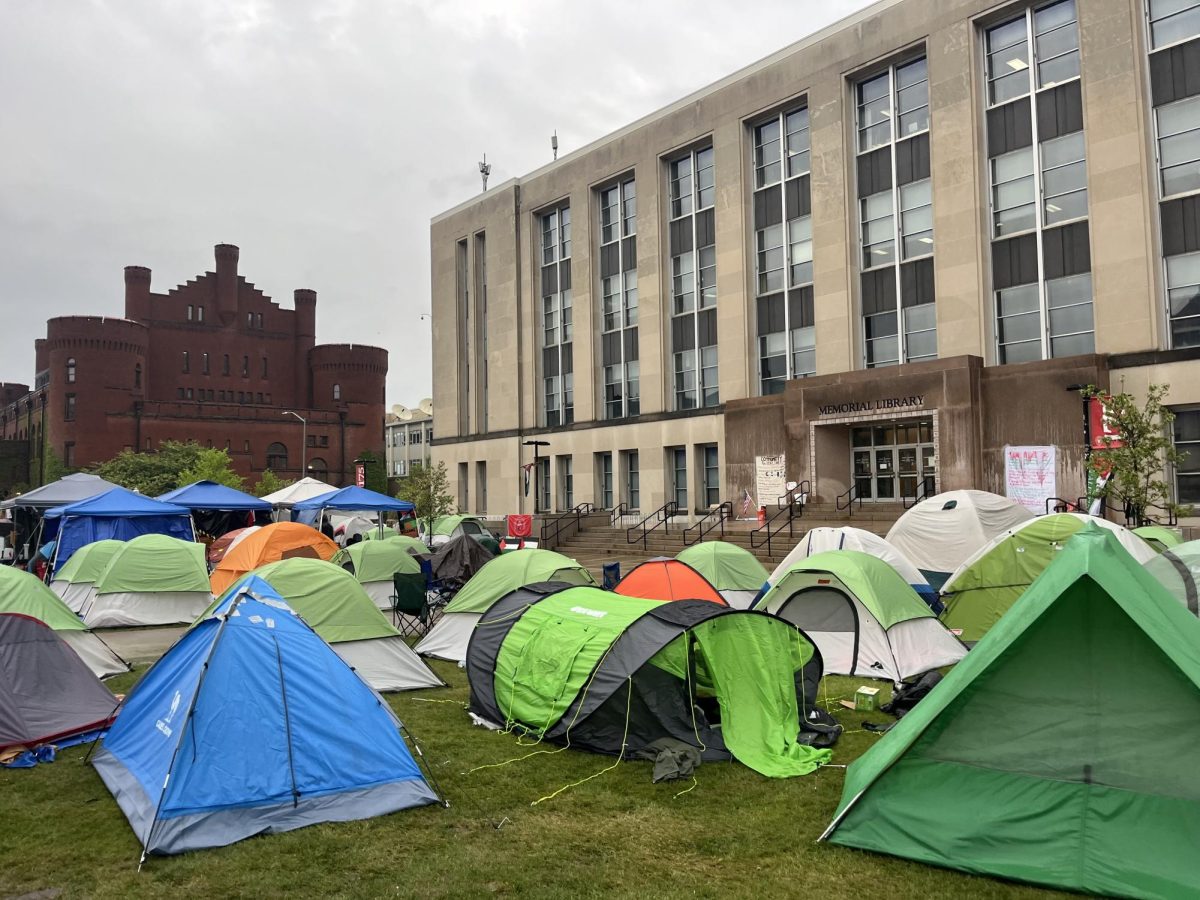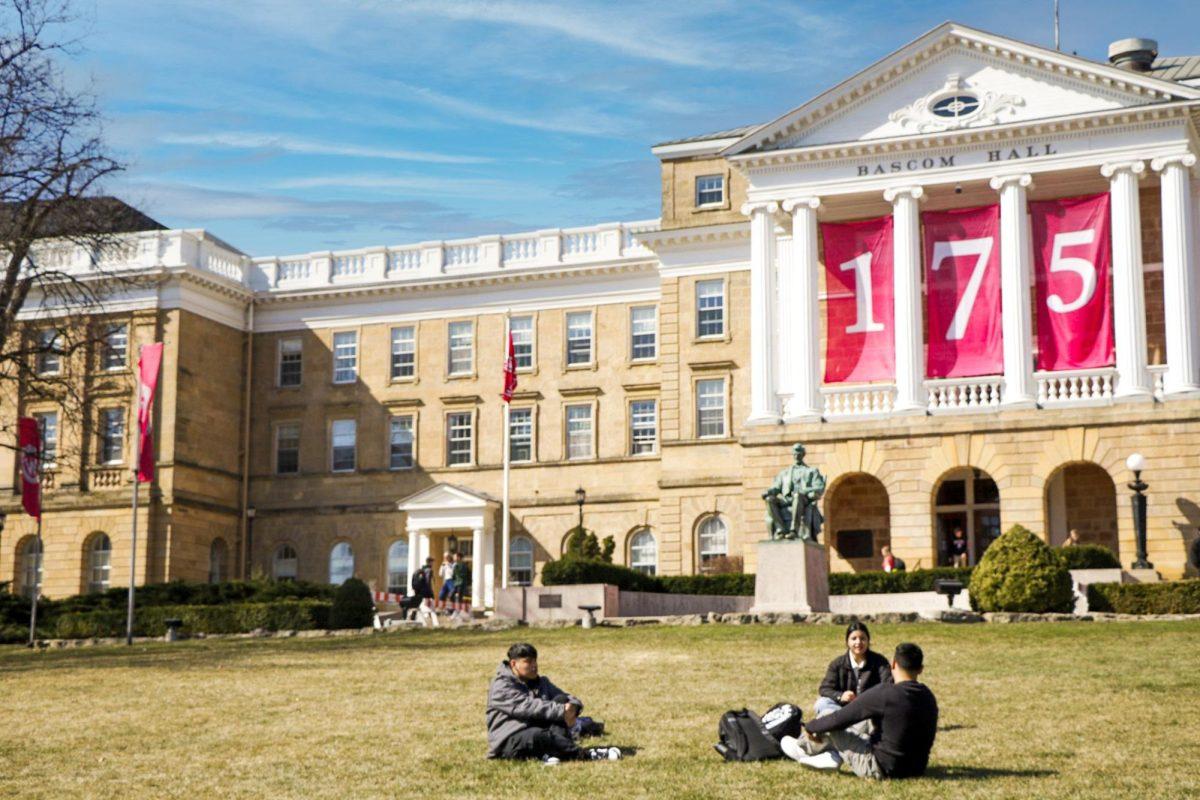An expert on higher education engaged the University of Wisconsin community Monday night, highlighting the ways in which increased costs of college tuition are making higher education less accessible for students.
University of Arizona higher education professor Gary Rhoades spoke at the Madison Museum of Contemporary Art lecture hall Tuesday as part of the Wisconsin Academy of Sciences, Arts & Letters’ evening talks.
He addressed his views on the issues institutions have today, and how large universities such as UW need to change their plan of action with regard to where money is spent.
He proposed re-allocating where money is spent in order to better benefit the students’ education, as he argued they define our country’s fate.
“Our future success of our country depends on their future success,” Rhoades said.
He said by raising tuition prices, however, this “future of success” through higher education is only made less accessible. He said if higher education institutions are to remain – or return to being – affordable, efforts to change must take place.
As of recently, he said he is seeing new models emerge that would reform how universities operate. All of these involve raising tuition and commercialization. Since college debt exceeds credit card debt in the U.S. today, Rhoades said he thinks there must be another course of action.
This course, he suggested, would involve spending less money on commodities to make the school more up-to-date and attractive, and spending more money on making sure more students graduate.
Rhoades drew upon an experience at a particular university he recently visited. He said the school had a 34 percent graduation rate after six years, but spent money not on improving graduation rates but on building a multimillion dollar recreation center with a lazy river.
He said as institutions compete for more and more intelligent students, they are forced to build big expensive attractions to draw those students in.
“[Universities] have to engage in an arms race in order to attract students,” Rhoades said.
As a result, he said, money is being spent in the wrong places. He suggested focusing more on students – specifically minority students – and suggested the educational value of the school will sell itself.
As of late, UW has a graduation rate around 84-85 percent and Rhoades said it is only going up. Minorities at UW, however, have a much lower graduation rate, he said.
According to Rhoades, colleges do not want to spend as much money on minorities because those students are more expensive to educate. He said this is because minority students often come from lower-income families and live in-state.
By spending more money on them and less on new elaborate dining halls, he said UW could raise graduation rates even higher than they already are.
Nonetheless, Rhoades said the issue lies with the fact that no one knows where to go from here as there are not any universities that are doing things “right” currently.
He said there is not one state where policymakers are paving a path toward getting the issue right.
UW Counselor Debbie Schmidt, who attended the talk, said she agreed with what Rhoades said.
“It’s hard to know what direction to go from here,” Schmidt said. “There aren’t any good examples for us.”


















